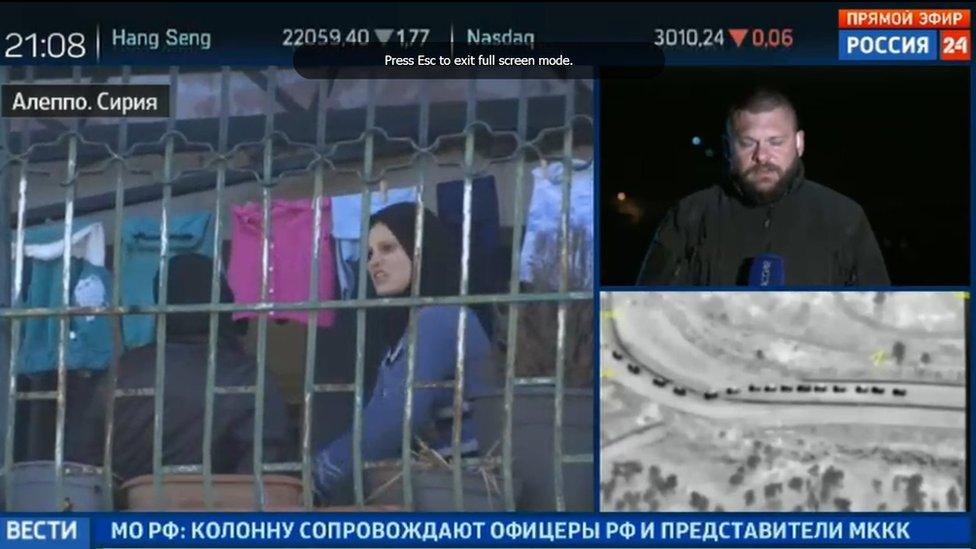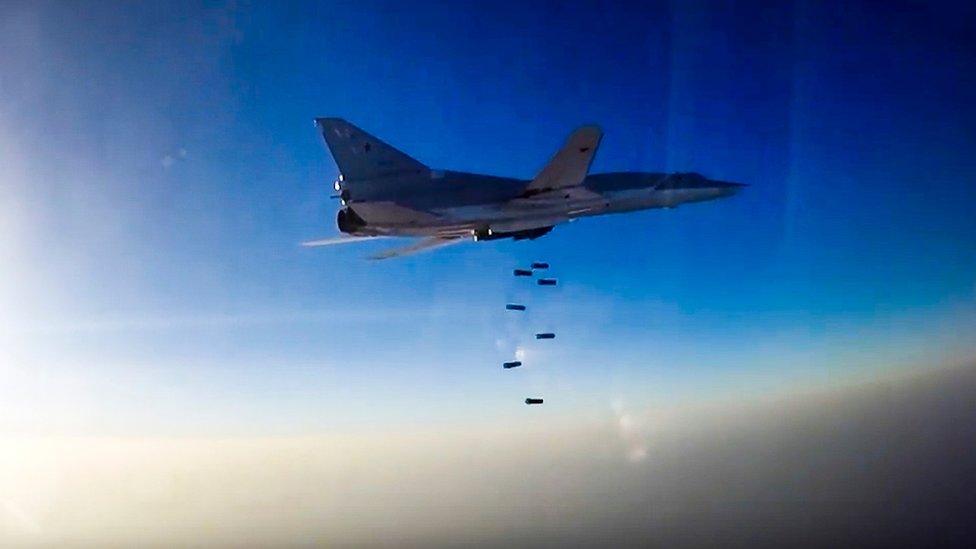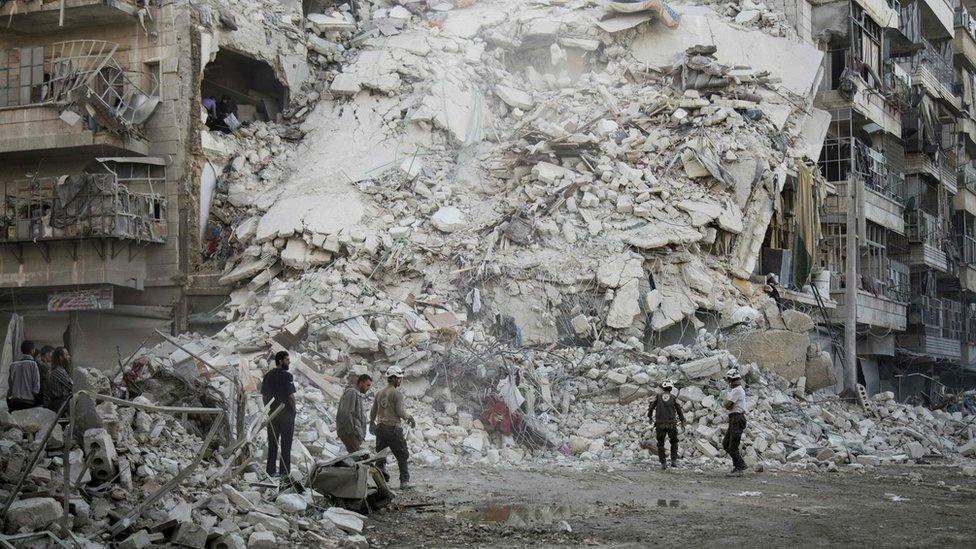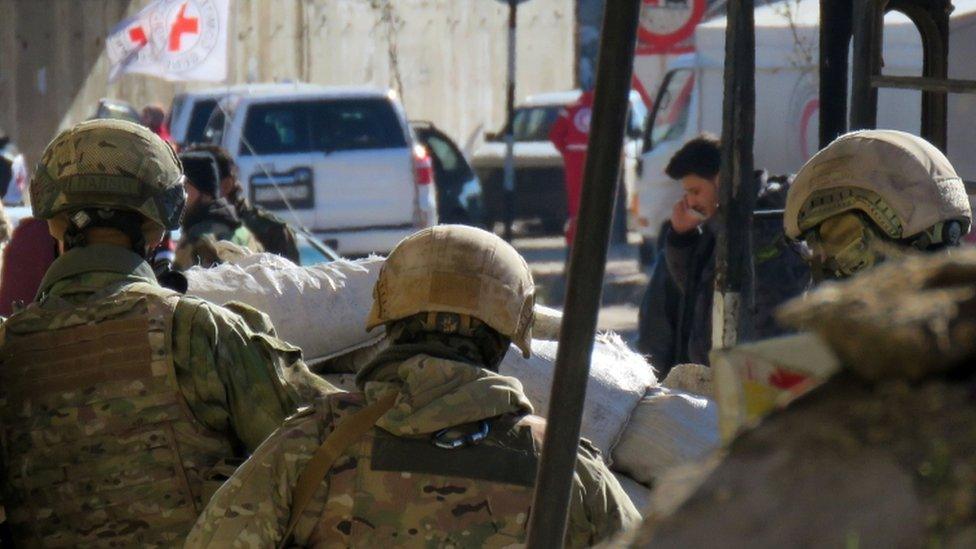Aleppo Syria: Russia hails 'victory over terrorism'
- Published

Russian TV coverage has portrayed the evacuation of rebel fighters and their families from eastern Aleppo as a humanitarian act
It was President Vladimir Putin himself who ordered Russian troops to oversee the evacuation of rebel fighters and their families from eastern Aleppo.
His call came after days of broken promises blamed on both sides. All day, Russian state television has been rolling pictures of the exodus, portraying a humanitarian act.
Russian officials have long claimed there was no "moderate" opposition to President Bashar al-Assad left in Aleppo.
So they hailed the city's recapture by Syrian government forces as a victory against terrorism. And as Western politicians decried war crimes there, President Putin's spokesman shrugged off such talk this week as "terrorist propaganda".

Moscow's intervention in Syria has always been about projecting its own power and influence

There has been no mention of indiscriminate bomb attacks in Aleppo on Russian TV
Russian condemnation has been reserved instead for the rebels in Aleppo: there was fury here when a military field hospital was shelled, killing two female medics.
Moscow's intervention in Syria has always been about projecting its own power and influence, as much as anything.
As part of that, state TV aired what it called exclusive images of Russian special forces there this week. The report showed them hitting targets with sniper fire and shells and calling in air strikes by Russian bombers.
There was no mention of the indiscriminate bomb attacks blamed on those planes, or of civilians caught up in the bloodshed.
Throughout the push to retake Aleppo, TV coverage has instead shown desperate civilians fleeing militant radicals to be met by Russian soldiers with blankets and hot food.
The powerful message has clearly hit home.

"I don't think there are any war crimes there," one man told the BBC, considering claims by the UN among others. "There's a war, people are dying and that's sad. Russia is fighting terrorism."
"I don't think it's fair to accuse Russia of things," a young woman agreed. "Russia is really helping the Syrian army. The legitimate army and legitimate government of Syria."
Russian political analyst Fyodor Lukyanov reasons that there is a "very important, almost final battle" in Aleppo "and in the current situation the winning side will not stop, whatever happens".
He argues that while Russia has influence on President Assad, it does not control him.
"Losses and different problems for the civil population are inevitable, but unfortunately this is a war for survival," Mr Lukyanov added.
While the West wavered over Syria, Moscow proved decisive and its intervention has now swung the conflict dramatically in favour of its ally. With Aleppo secured, Russia is likely to step up calls for diplomacy once again and push for a negotiated end to the conflict.
But some here warn the brutal battles of recent weeks will have radicalised many rebels, and hardened the position of Damascus.
"Assad's regime will not be that eager for political consultations after this," Fyodor Lukyanov suggested. "Assad is not an easy client."

It was President Putin who ordered Russian troops (pictured above) to oversee the evacuation of rebel fighters and their families from eastern Aleppo